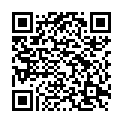|
|
|
| Module code: BBWL-571/671 |
|
|
4LU (4 hours per week) |
|
5 |
| Semester: according to optional course list |
| Mandatory course: no |
Language of instruction:
German |
Assessment:
Practical examination
[updated 30.03.2021]
|
BBWL-571 Business Administration, Bachelor, ASPO 01.10.2012
, optional course
BBWL-571/671 (P420-0141) Business Administration, Bachelor, ASPO 01.10.2016
, optional course
BBWL-2020-571 (P420-0141) Business Administration, Bachelor, ASPO 01.10.2020
, semester 5, optional course
|
60 class hours (= 45 clock hours) over a 15-week period.
The total student study time is 150 hours (equivalent to 5 ECTS credits).
There are therefore 105 hours available for class preparation and follow-up work and exam preparation.
|
Recommended prerequisites (modules):
BBWL-130 Business Informatics
BBWL-350 Data and Business Process Management
BBWL-460 Business Information Systems
[updated 01.10.2016]
|
Recommended as prerequisite for:
|
Module coordinator:
Prof. Dr. Stefan Selle |
Lecturer: Prof. Dr. Stefan Selle
[updated 01.10.2016]
|
Learning outcomes:
After successfully completing this module, students will:
- understand and be able to describe the basic principles, concepts, methods and notations used in software engineering,
- be able to model operational information systems in an object-oriented manner,
- be able to implement and test software in an object-oriented manner,
- be able to analyze, evaluate and improve source code,
[updated 30.03.2021]
|
Module content:
- Software engineering basics
- Object-oriented modeling with UML
- Object-oriented programming with, for example, Java or Python
- Automated testing (e.g. with JUnit or unittest, pytest)
- Refactoring, design pattern
[updated 30.03.2021]
|
Teaching methods/Media:
Inverted / flipped classroom with eLearning support (for example: Moodle): Specially prepared documents / self-study media on technical and methodological knowledge
Lab course with exercises and case studies: Independent work on the PC to solve business-related tasks by applying the methods learned with the help of suitable tools (e.g. Visio, Eclipse, Java, JUnit, Anaconda, Jupyter Notebook etc.).
[updated 30.03.2021]
|
Recommended or required reading:
The basics / UML:
- Balzert, H.: Lehrbuch der Softwaretechnik - Basiskonzepte und Requirements Engineering, 3. Auflage, Spektrum Akademischer Verlag, Heidelberg, 2009.
- Balzert, H.: UML 2 kompakt, 3. Auflage, Spektrum Akademischer Verlag, Heidelberg, 2010.
Java:
- Deck, K.-G., Neuendorf, H.: Java-Grundkurs für Wirtschaftsinformatiker, 2. Auflage, Vieweg+Teubner, Wiesbaden, 2010.
- Ratz, D. et al: Grundkurs Programmieren in Java, 6. Auflage, Carl Hanser Verlag, München, 2011.
- Sierra, K., Bates, B.: Java von Kopf bis Fuß, 3. korrigierter Nachdruck, O‘Reilly Verlag, Köln, 2008.
- Ullenboom, C.: Java ist auch eine Insel, 14. Auflage, Rheinwerk Verlag, Bonn, 2018.
Python:
- Hubertz, J.: Softwaretests mit Python, Springer Vieweg Verlag, Wiesbaden, 2016.
- Pilgrim, M., Wollenschein, F.: Python 3 Intensivkurs, Springer Verlag, Berlin, 2010.
- Steyer, R.: Programmierung in Python, Spinger Vieweg Verlag, Wiesbaden, 2018.
[updated 30.03.2021]
|

